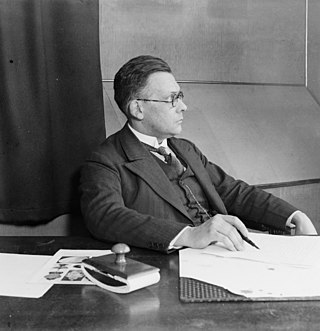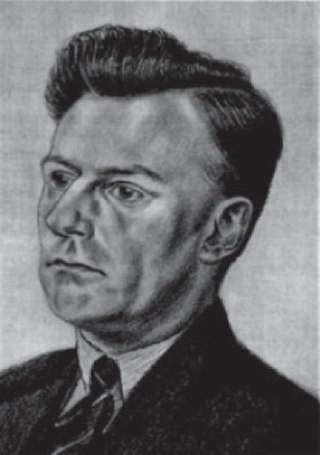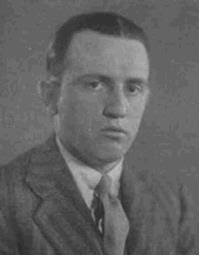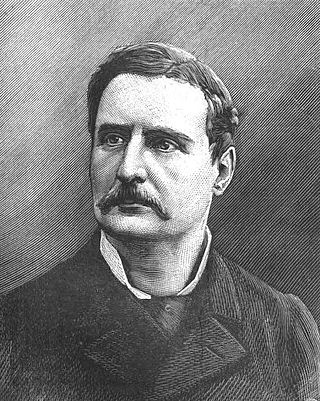The Alarodian languages are a proposed language family that encompasses the Northeast Caucasian (Nakh–Dagestanian) languages and the extinct Hurro-Urartian languages.
Jersey Dutch, also known as Bergen Dutch, was a Dutch dialect formerly spoken in northeastern New Jersey from the late 17th century until the early 20th century. It evolved in one of the two Dutch-speaking enclaves that remained for over two centuries after the dissolution of Dutch control in North America, the other giving rise to Mohawk Dutch. It may have been a partial creole language based on Zeelandic and West Flemish Dutch dialects with English and possibly some elements of Lenape.
In linguistics, the Japhetic hypothesis or Japhetic theory of Soviet linguist Nikolay Yakovlevich Marr (1864–1934) postulated that the Kartvelian languages of the Caucasus area are related to the Semitic languages of the Middle East. The hypothesis gained favor in the 1930s and 1940s among some Soviet linguists for ideological reasons as it was thought to represent "proletarian science" as opposed to "bourgeois science", but also had numerous detractors, most notably Arnold Chikobava. The hypothesis finally fell into disrepute and was largely discarded after 1950, when Joseph Stalin published a scathing critique of the views of Marr and his supporters, titled "Marxism and Problems of Linguistics".

Jan Niecisław Ignacy Baudouin de Courtenay, also Ivan Alexandrovich Baudouin de Courtenay, was a Polish linguist and Slavist, best known for his theory of the phoneme and phonetic alternations.
Hans Georg Conon von der Gabelentz was a German general linguist and sinologist. His Chinesische Grammatik (1881), according to a critic, "remains until today recognized as probably the finest overall grammatical survey of the Classical Chinese language to date."

Oudenbosch is a town in the municipality of Halderberge in the west of the Dutch province of North Brabant. Oudenbosch is well known for its 'Basiliek', a Catholic church that is a smaller copy of St. Peter's Basilica in Rome.

Jan Pieter Marie Laurens de Vries was a Dutch philologist, linguist, religious studies scholar, folklorist, educator, writer, editor and public official who specialized in Germanic studies.
John Rupert Firth OBE, commonly known as J. R. Firth, was an English linguist and a leading figure in British linguistics during the 1950s.
Structural linguistics, or structuralism, in linguistics, denotes schools or theories in which language is conceived as a self-contained, self-regulating semiotic system whose elements are defined by their relationship to other elements within the system. It is derived from the work of Swiss linguist Ferdinand de Saussure and is part of the overall approach of structuralism. Saussure's Course in General Linguistics, published posthumously in 1916, stressed examining language as a dynamic system of interconnected units. Saussure is also known for introducing several basic dimensions of semiotic analysis that are still important today. Two of these are his key methods of syntagmatic and paradigmatic analysis, which define units syntactically and lexically, respectively, according to their contrast with the other units in the system. Other key features of structuralism are the focus on systematic phenomena, the primacy of an idealized form over actual speech data, the priority of linguistic form over meaning, the marginalization of written language, and the connection of linguistic structure to broader social, behavioral, or cognitive phenomena.
The Copenhagen School is a group of scholars dedicated to the study of linguistics, centered around Louis Hjelmslev (1899–1965) and the Linguistic Circle of Copenhagen, founded by him and Viggo Brøndal (1887–1942). In the mid twentieth century the Copenhagen school was one of the most important centres of linguistic structuralism together with the Geneva School and the Prague School. In the late 20th and early 21st century the Copenhagen school has turned from a purely structural approach to linguistics to a functionalist one, Danish functional linguistics, which nonetheless incorporates many insights from the founders of the Linguistic Circle of Copenhagen.
Antoni Dufriche-Desgenettes, baptized Antoine Marie Dufriche-Foulaines, was a French seafaring merchant, poet and amateur phonetician.

Guillaume Jacques is a French linguist who specializes in the study of Sino-Tibetan languages: Old Chinese, Tangut, Tibetan, Gyalrongic and Kiranti languages. He also performs research on the Algonquian and Siouan language families and publishes about languages of other families such as Breton. His case studies in historical phonology are set in the framework of panchronic phonology, aiming to formulate generalizations about sound change that are independent of any particular language or language group.

Lambert ten Kate was a Dutch linguist. Specialised in comparative historical linguistics, he was also a well-known art collector.

Adriaen Verwer was a Dutch Mennonite merchant, scholar, philosopher and linguist. He wrote books on language, religion and maritime law. He is best known for his grammar Linguae Belgicae, published anonymously in 1707. He is often regarded as the linguistic mentor of his younger friend Lambert ten Kate.
Ingrid Marijke Tieken-Boon van Ostade is a professor emeritus of English Sociohistorical Linguistics at Leiden University's Centre for Linguistics. She has researched widely in the area of English socio-historical linguistics having looked at such diverse fields as English negations, historical social network analysis, the standardisation process and the language of 18th-century letters. She has recently published a book on Bishop Lowth (1710–1787). Her work on a collaborative project on English usage was featured in the BBC Radio 4's Making History programme.
Ernst Frideryk Konrad Koerner was a German author, researcher, professor of linguistics, and historian of linguistics.

Pieter Jacobus (Piet) Meertens was a Dutch scholar of literature, dialects, and ethnology. He founded the institutes which later merged into the Meertens Instituut, of which he was the director until 1965.

Lawrence Gwyn Van Loon was an American general practitioner, amateur historical linguist and forger.

Abel Hovelacque was a 19th-century French linguist, anthropologist and politician.
Johanna Corleva (1698–1752) was a Dutch translator and grammarian active in the 1740s. She is presumed to be the first female lexicographer from the Netherlands because of her Dutch–French dictionary De Schat der Nederduitsche Wortel-woorden.










